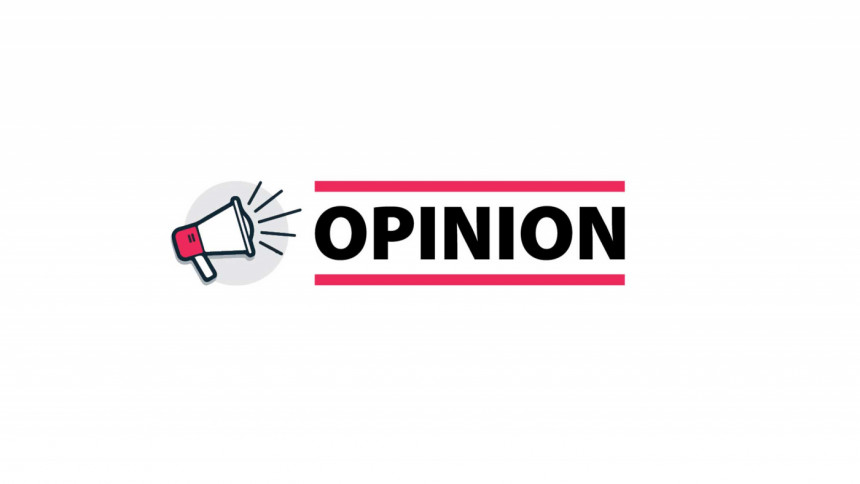Build your own brand

I take pride in sharing with my readers that I was taught branding at Kellogg School of Management by a certain Professor Philip Kotler. At the same time, my piece on "Branding Bangladesh" drew the attention of Simon Anholt, known to be a guru of this subject, who subsequently wrote a piece on nation branding in the local newspaper.
However, the session that intrigued me most was a lecture on "Build Your Own Brand" by a business school senior some 25 years ago.
Proper branding that communicates what an organisation offers has now become the focus of all successful organisations the world over.
PwC's focus on building trust in society by solving important problems underlines its promise as an organisation of problem-solvers creating value in society. Apple's brand promise is one of innovation and a superior user experience. These brands have become synonymous with these values. While corporate branding is widely known and practiced in Bangladesh, personal or individual branding as a concept is something that professionals have largely failed to capitalise on.
Personal branding is the representation of an individual. While professionals are judged on the reputation of the company they work for or their designation, increasingly the work they do, or the brand promise they communicate about themselves is becoming important. For some professionals, especially those in the professional services industry, personal branding is a crucial tent of the reputation that differentiates them in a crowded marketplace.
Why is personal branding important?
What you do, the way you do it, who you do it for, the people you do it with, and the way people perceive of what you have done all combine to determine what your personal brand is. When people know what you represent and you can build trust in the quality of work that you put forward, you are defined less by the role you occupy and more by what you can offer. This results in far greater autonomy than a world where professionals were dependent on being recognised by their superiors in an organisation and hoped that their work would be recognised.
In the job market, companies vie to attract the most talented professionals. Once you have a brand that people trust, people would choose to work with you, even at a premium, rather than with someone who does not have a strong brand and therefore can't be trusted to deliver high-quality work.
The benefits compound over the course of your career as you build up a strong network, which can be leveraged for greater opportunities, which, in turn, create a self-reinforcing cycle further improving your value as a resource. Those who have a strong brand become invaluable for anyone trying to grow their business, and in a growing economy like Bangladesh, it acts as a major differentiating factor.
How to brand yourself properly?
The most important thing that must be remembered when engaging in personal branding is to be authentic. Anyone who tries to "fake it till they make it" will get found out very quickly in a corporate setting. Therefore, the crucial tenet of personal branding is competency. However, competency by itself is going to only take you so far unless people know that you are competent and can be trusted with important opportunities.
There are a few ways to begin branding yourself and the work you do properly:
Determine what it is you offer: A major mistake that people make is trying to be everything at once. You have a limited amount of time and what you are worth as a resource will depend heavily on what the expectations from you are.
An analyst in a consulting company is evaluated on the quality of his/her deliverables. If they choose to focus on sales or other activities that form a manager's KPI (key performance indicator), the quality of their work will inevitably suffer. This expectation will change as you progress in your career. And if you want people to trust your brand, you must perform at a high level in all the competencies your role requires.
Develop your skills: While this is in no way limited to developing your personal brand, it is still a very important step in making people trust you. People will hire you or work with you based on your offering. If you don't offer a higher quality of service than the alternatives in the market, there is no reason for them to choose you over them.
Consistency: If your quality of work suffers from a series of hits and misses, then you will be branded as inconsistent. You must churn out high quality output consistently and have a learning mindset that seeks to minimise the mistakes that you make.
Create trust in your manner of work: The way you communicate, how you dress, the delivery in a presentation and the way you handle conflicts are all reflective of your competency. In industries such as investment banking, a dress code is strictly adhered to, while in tech industries, that may not be an expectation. Expectations differ, so find out what matters most.
Deliver according to client expectations: Clients are not necessarily external; your boss or your superiors can be clients as well. However, for those in a client-facing industry such as banking and finance or professional services such as consulting, meeting client expectations is the bedrock on which their personal brand is built.
The most rewarding careers are based on clients, whether they are individuals or institutions, trusting you to make decisions on their behalf. If they can trust that you would place their interests before your own and would always be available to them, then you will command a strong brand. For instance, the CFA Institute's code of ethics states that charter-holders must put their clients ahead of both themselves and their employers.
Highlight your work: Finally, all the above may be ineffective if you are unable to communicate that your work is of very high quality. Ask for more responsibility, take the tough jobs, make that client presentation, go the extra mile, and deliver on the responsibility that you have assumed.
If you never claim credit for your work, you will never gain renown. But if you are a braggart or someone who steals credit, no amount of competency will let your brand survive.
Personal or individual brands can' be built overnight. It takes years of consistently doing the right thing at a high level. This comes down to attitude and a relentless focus on doing work that is tough and learning from it.
How you carry yourself, how you act in a challenging situation, how your work motivates people, why people will remember you in your absence, and moreover, how you create value in the society -- all combine to help you build your own brand.
The author is a partner at PwC Bangladesh. Views are his own.


 For all latest news, follow The Daily Star's Google News channel.
For all latest news, follow The Daily Star's Google News channel. 



Comments